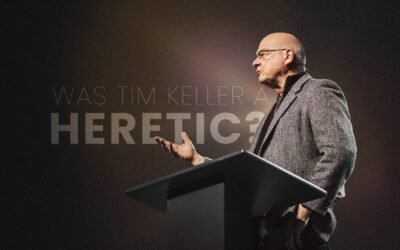We live in an age of novelty and 3-second attention spans, where the shelf life for social media content is shorter than a snowflake’s ego in a microwave or a politician’s memory of their campaign promises. For many in the younger generation who have grown up steeped in such a shallow pool of trivialities, they have begun to yearn for depth and stability. Tradition and history are starting to see a rising interest, especially among younger males.

The NYPost ran a story in 2024 with the headline, “Young men leaving traditional churches for ‘masculine’ Orthodox Christianity in droves.” They’re leaving effeminate, seeker-sensitive mega churches in search of depth and rootedness. But much of Evangelicalism has embraced the attractional church growth movement, trading tried and true paths for modern inventions and novelties that have produced generations of immature believers, weak families, failing churches and depraved societies.
Think about it: if a friend asked you, “What does your church believe?” Could you answer clearly in a few sentences, or would you struggle to summarize the Bible’s teachings? Or if your young child asked, “Who is God?” How would you explain it simply yet profoundly? Reformed Catechisms, Confessions, and Historic Creeds offer time-tested answers to these questions, grounding us in Scripture and connecting us to the historic Church.
I’m going to be arguing here that Evangelical Christians and churches should make use of these tools that offer clarity, unity, and a way to equip believers to live out and defend their faith. These are our inheritance as Christians who have been entrusted to contend for the faith once for all delivered to the saints. We must not squander such an inheritance because these ancient paths provide a basis for a truly countercultural faith that can stand up to the challenges of the modern world.
Watch the talk here:
Or listen here:
KEY POINTS (TL;DR)
- Definition: Creeds and confessions are historic, eccumenical church documents summarizing biblical beliefs, serving as secondary standards under Scripture’s authority.
- Importance: They anchor Christianity to its historical roots, counter modern individualism, and ensure doctrinal consistency across generations.
- Biblical Basis: Scripture, such as 2 Timothy 1:13, supports using “a pattern of sound words” to summarize doctrine, suggesting creeds align with biblical practice.
- Historical Role: From the early church’s Rule of Faith to the Reformation’s confessions, these documents have preserved orthodoxy against heresy.
- Practical Benefits: They foster unity, guide teaching, enhance worship, and provide clarity for believers and churches.
Use the button below to download the handout notes for this talk.
Full notes for the talk are below.
1. What Are Creeds & Confessions
Creeds, confessions, and catechisms are historic documents that articulate the core beliefs of the Christian faith, rooted in Scripture.
These are not solely Roman Catholic or Eastern Orthodox things. The truth is that all churches are creedal. We all must synthesize the truths contained in Scripture into some system of beliefs.
As Dr. Carl Trueman explains,
“all Christians engage in confessional synthesis; the difference is simply whether one adheres to a public confession, subject to public scrutiny, or a private confession that is, by its very nature, immune to such examination”
(Trueman, The Creedal Imperative, Crossway, 2012, p. 76).
This distinction highlights their role in making implicit beliefs explicit and accountable. These are not individual opinions but corporate, time-tested affirmations of orthodox and biblical beliefs..
What is a catechism? (Questions & Answers)
A catechism is a series of short questions and answers about faith that are based on the Bible and easy to memorize.
Because catechisms are learning how to answer questions with the Word of God, they are perfect for preparing us to “be ready to give an answer for the hope that is in us” (1 Pet. 3:15). They are ready-made, apologetic tools that have been tested for centuries.
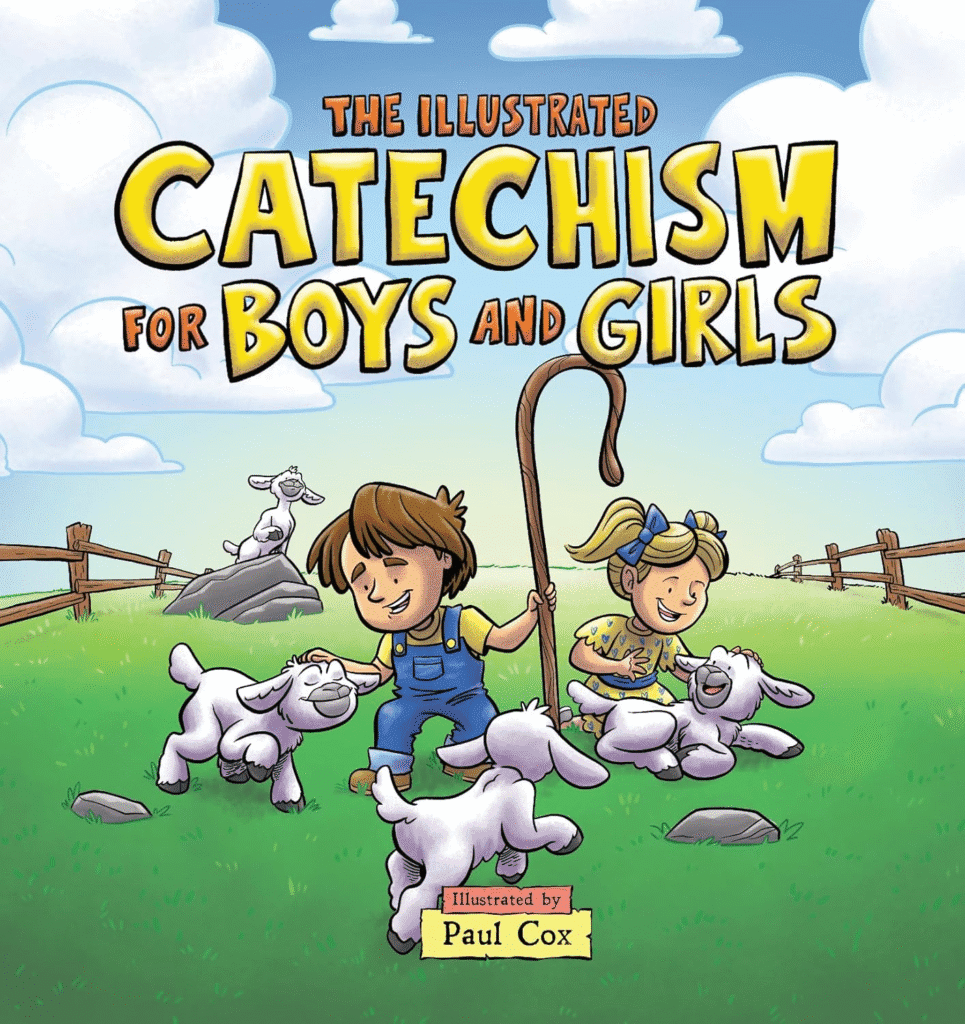
Recommended Catechisms
- The Baptist Catechism for Boys and Girls – This is a catechism that is specifically designed for young kids, but is also excellent for new believers. It encapsulates the major important doctrines of the Christian faith from a Baptist perspective.
- The Westminster Catechism – There are 2 versions, the Shorter and Larger Catechism. Both versions include the scriptural ‘proof texts’ that show you right from scripture where they are getting the answers.
What is a Creed? (That is wrong, this is right)
Heresies are not usually born out of outright lies, but rather out of half-truths or imprecise statements.
A Creed is a precise statement affirming Biblical truth against heresy.
Creeds connect us to the historic Christian faith. All the historic creeds of the church were formed in response to the challenges of heretical doctrines. For example, the Nicene Creed was formulated to combat the heresy of Arianism that denied that Jesus was truly God.
These heresies are still alive today. Mormons and Jehovah’s Witnesses repeat the Arian heresy, saying that Jesus is ‘a god’ or a created being. The creeds help us precisely and concisely define the historic faith that Christians have believed for centuries.
Recommended Creeds
- The Apostle’s Creed (c.120-250 AD) – This is one of the oldest Creeds and its doctrine is traced back to the original apostles. It concisely defines the essence of the Christian faith. The Early Church often used it as a baptism requirement.
- The Nicene Creed (325-381 AD) – This Creed was the product of the Council of Nicea in response to Arian heresy and clearly defines the doctrine of the deity of Christ.
There is still a need for new creeds to be formulated because orthodox doctrine must be defined and defended in every age. Some new modern Creeds (sometimes called Statements or Declarations) are the Chicago Statement on Biblical Inerrancy (1978), the Nashville Statement on Biblical Sexuality and Gender (2017), the Statement on Social Justice and the Gospel (2018), the Niagara Declaration (written in 2020 about the liberty of the Church in Canada and the Biblical role and limits of government), the The Frankfurt Declaration of Christian & Civil Liberties (2022).
What is a Confession? (This we believe)
A Confession is a systematic statement of what we believe.
They vary in length and detail. Every church has a confession (whether or not it is written down). The advantage of written confessions is that they are a detailed and systematic explanation of what and why we believe, with scriptural proof texts that is open to public scrutiny.
Recommended Confessions
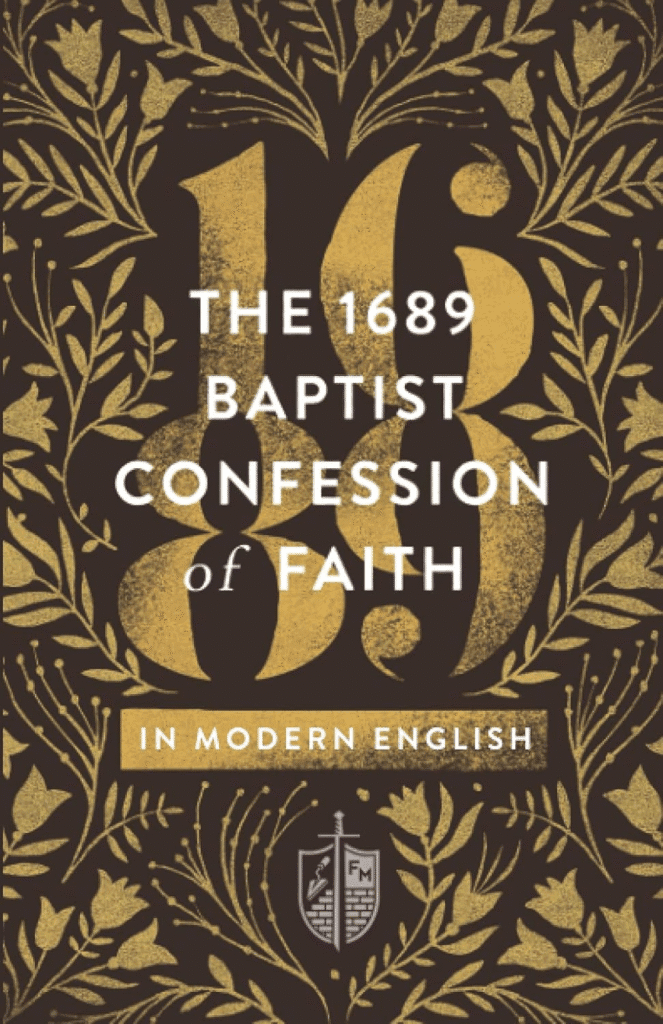
- The Second London Baptist Confession of Faith (1689) – This is a historic Reformed Baptist confession of faith. It is structured systematically and touches on every major category of the faith with scriptural texts to study the explanations.
- The Westminster Confession of Faith – this is similar to the Baptist Confession but from a Presbyterian point of view.
Objection: “The Bible is God-breathed and infallible. Creeds, confessions and catechisms are man-made and fallible, so we shouldn’t use them. The Bible is enough.”
Rebuttal: No one is arguing that the Bible is insufficient. However, we must interpret the Bible. While they are human compositions, they serve as faithful summaries of Biblical truth. Dr. Carl Trueman clarifies, “Scripture is the norming norm, creeds are the normed norm” (Crisis of Confidence, Crossway, 2024). They’re like maps—reliable guides to God’s Word, or like guard rails—helping us stay on course, yet open to correction by Scripture.
John Piper agrees,
“I think they have a really important place. But they aren’t to be a replacement for the Bible and they shouldn’t be given equal authority to the Bible. Rather, they are to be considered faithful expressions of the Bible.”
In an age where many Christians take up a “it’s just me, my Bible and Jesus” sort of attitude, Creeds, Confessions and Catechisms break us out of our individualistic doctrinal narcissism and open us up to the wisdom of centuries instead of being trapped in the echo chamber of our own opinions.
The Bible itself doesn’t encourage us to ignore the wisdom of others just because they are fallible men. As Proverbs 12:15 says, “The way of a fool is right in his own eyes, but a wise man listens to advice.” These historic documents are a way to listen to the advice of centuries of godly men who came before us on how to faithfully interpret the core doctrines of God’s Word.
It is an act of pure modern hubris and pride to think that we know better than the collective wisdom of centuries of thousands of faithful saints who’ve devoted their lives to the study of God’s Word. Furthermore, we go much further if we build on the foundations laid by generations past instead of reinventing the wheel every time.
2. Why Are Creeds & Confessions Important
For many Evangelical Christians and churches today, church history practically began at Billy Graham. They simply don’t know anything about the past—nor is any particular interest given to it. Sadly, even pastors are woefully ignorant of church history—especially in Evangelicalism. Perhaps this is one of the reasons why Evangelical churches are losing people to Roman Catholicism and Eastern Orthodoxy.
Pastor Zachary Garris, while encouraging Protestants to return to their rich tradition, notes,
“We live in a day and age where modern academics, politicians, and religious leaders are destroying our traditions. They tear down our statues. They erect ugly buildings. They whitewash our history. We are in a battle for the future, and that means we are in a battle for the past. Young men and women need history. They need tradition. They long for it.
But where will they find such tradition? Unfortunately, most Protestants have ignored or outright rejected their own tradition. They have spurned their history. And thus, they have little to offer modern man looking to lay down his roots.”
We live in a radically individualistic, relativistic, narcissistic culture that celebrates “follow your heart” and dismisses external authority. Catechisms, creeds, and confessions challenge this mindset.
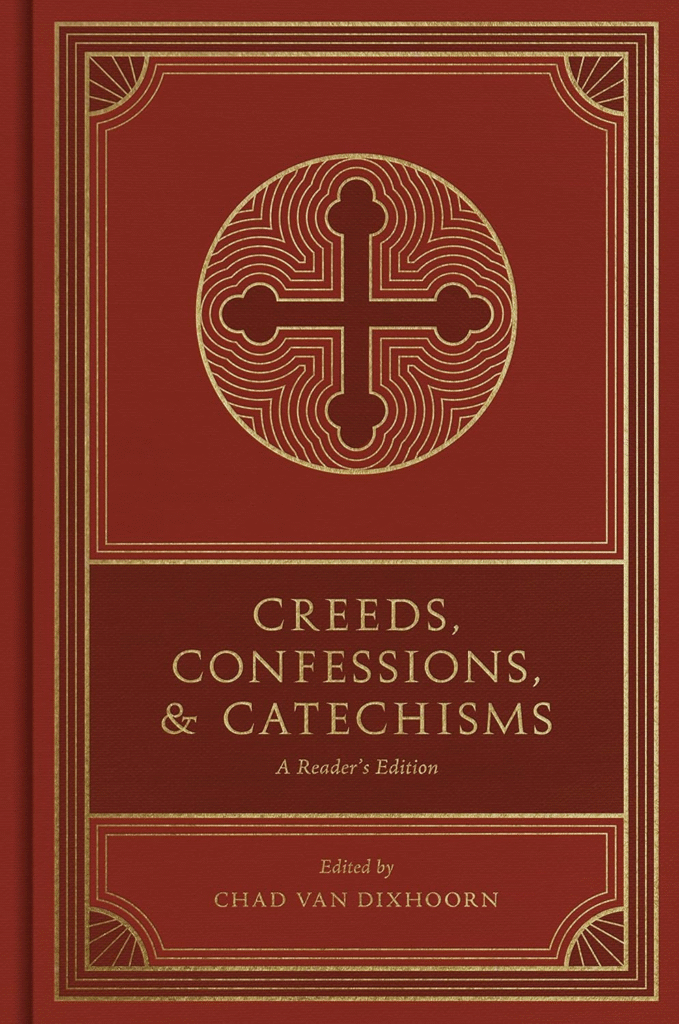
“Creeds go directly against the grain of an antihistorical, antiauthoritarian age. They strike hard at the cherished notion of human autonomy and of the notion that I am exceptional, that the normal rules do not apply to me in the way they do to others.” (Trueman, The Creedal Imperative)
They call us to submit to God’s truth as revealed in Scripture and affirmed by the church throughout history. They pull us out of our historic isolation and invite us to be a part of something that spans the centuries.
What about dead orthodoxy?
Some think that adopting Creeds and Confessions will lead to dead orthodoxy and decline in the Church. However, according to Lifeway Research and Barna Group data, membership trends suggest confessional churches like the PCA and LCMS are growing or stable, while non-confessional ones like PCUSA and ELCA are declining, possibly due to clear doctrinal standards attracting members seeking certainty. The PCA’s tenfold growth since 1983 contrasts with PCUSA’s 37% membership loss since 1992, suggesting confessional adherence has historically fostered resilience.
Without clear standards, churches risk drifting into subjective interpretations.
As Dr. Trueman notes,
“Anyone who has ever been told by a friend that the Lord led such a friend to do something completely silly, or anyone who has ever been at a Bible study where the burden has been to explain ‘what the text means to me,’ regardless of what the words on the page and the grammar and syntax might otherwise indicate, has experienced an evangelical mysticism that is not really distinguishable from traditional liberalism at the level of its understanding of what constitutes truth.” (Trueman, The Creedal Imperative)

Public confessions, tested by the church over centuries, carry the weight of historical consensus, ensuring our beliefs align with Scripture. They foster unity by providing a clear doctrinal standard, countering the notion that doctrine divides. Moreover, catechisms, when used thoughtfully, are vibrant tools for teaching:
“Catechisms are only dead and dry documents if one chooses to make them so. Given that a good catechism bursts with beautiful statements about who God is and what he has done, with a little thought and care they can enrich the dramatic action that should characterize the Christian worship service.” (Trueman, The Creedal Imperative)
Just listen to the beautiful words of the Heidelberg Catechism (1563):
Q. What is your only comfort in life and in death?
A. That I am not my own, but belong—body and soul, in life and in death—to my faithful Saviour, Jesus Christ. He has fully paid for all my sins with his precious blood and has set me free from the tyranny of the devil. He also watches over me in such a way that not a hair can fall from my head without the will of my Father in heaven; in fact, all things must work together for my salvation. Because I belong to him, Christ, by his Holy Spirit, assures me of eternal life and makes me wholeheartedly willing and ready from now on to live for him.
Sure, the Statement of Faith your church wrote last week might be fine, but has it stood the test of centuries? That’s yet to be determined. Why not start with something that has already stood the test as a good foundation? So many Evangelical churches drift and fade away after their planting pastor passes on. If we want to build churches that outlast us, we must lay stable foundations.
Objection: “These documents are outdated and don’t address modern issues.”
Rebuttal: They address timeless truths about God, Christ, and salvation that are relevant to any era. The language may need modernizing, but the content remains true. There are indeed some modern issues (such as the LGBTQ+ movement or the Biblical limits and role of the State) that historic creeds and confessions don’t address directly. But this is why there is a need for new creeds to aid in the battle for truth in every age. However, historic Creeds and Confessions form a sure foundation that we can build upon for today’s battles without having to struggle again for yesterday’s victories.
3. The Biblical Case
Objection: “Creeds add to Scripture, violating sola scriptura.”Rebuttal: Creeds are subordinate to Scripture, summarizing its teachings. They’re tools to clarify, not replace, God’s Word. Furthermore, the most compelling case for utilizing Creeds, Confessions and Catechisms is that the Bible itself supports and requires them as tools for summarizing and preserving doctrine.
A Pattern of Sound Words
In his final letter, the apostle Paul writes to Timothy,
“Follow the pattern of the sound words that you have heard from me, in the faith and love that are in Christ Jesus. By the Holy Spirit who dwells within us, guard the good deposit entrusted to you.” (2 Timothy 1:13—14)
Paul is at the end of his ministry, and one of the foremost concerns he had was the continuance of the faith. Notice here that the apostle emphasizes following in “the pattern of sound words”. The Greek word used for ‘form’ or ‘pattern’ here describes a model, form, or standard that is intended to function as a trustworthy or reliable guide. Paul cared about the form of the words used, not just the concepts—he desired precision, much like creeds do.
Note also that Paul connects this to guarding the deposit of faith we’ve been entrusted with. From its very beginnings, the Church was instructed by the apostles to utilize Creedal formulas. As Dr. Trueman notes,
“To claim to have no creed but the Bible, then, is problematic: the Bible itself seems to demand that we have forms of sound words, and that is what creeds are.” (The Creedal Imperative, p. 76)
Creeds in Scripture
Many Christians don’t realize that Scripture itself contains early creedal forms, like the hymn in Philippians 2:5–10, which declares, “at the name of Jesus, every knee should bow, in heaven and on earth and under the earth, and every tongue confess that Jesus Christ is Lord, to the glory of God the Father.” The Greek of that passage indicates that this was meant to be sung or memorized. Paul in 1 Corinthians 15:3 gives us an early creedal formula when he says, “For I delivered to you as of first importance what I also received…” then proceeds to give a succinct summary of the Gospel.
Similarly, 1 Timothy 1:15 states, “This statement is trustworthy and deserving of full acceptance, that Christ Jesus came into the world to save sinners…” etc, reflecting another concise doctrinal summary. 1 Timothy 3:16 in Greek offers a rhythmic confession: “Great indeed, we confess, is the mystery of godliness…”
In 2 Thessalonians 2:15, when Paul writes, “stand firm and hold to the traditions that you were taught by us, either by our spoken word or by our letter”—what are the traditions he is referring to? They were clearly handed down either orally or in written form. This highlights that this was a practice of the church from the very beginning—to hand down precise formulations of Biblical doctrine and utilize traditions to do so. In the Old Testament, God gave His people a confession that they were to recite regularly in the Shema of Deuteronomy 6.
These texts demonstrate that summarizing doctrine into concise and precise formulations that are easy to memorize and pass on is a biblical practice.
Churches and Christians who reject utilizing Creeds and Confessions are actually the ones who are breaking with the Biblical pattern given to us by the apostles. When we utilize Creeds, Confessions and Catechisms, we are simply following the apostolic pattern passed down to us to guard the deposit of faith (2 Tim. 1:14).
In Romans 16:17, Paul warns, “watch out for those who cause divisions and create obstacles contrary to the doctrine that you have been taught,” indicating that sound doctrine fosters unity, not division. John Piper reinforces this:
“We need faithful expressions of the Bible—both those written for our generation and those preserved from other generations.”
Historic Creeds and Reformed catechisms and confessions are these faithful expressions, equipping believers to articulate and defend their faith (1 Pet. 3:15–16; cf. Col. 4:6).
“The Bible offers numerous indications that an agreed verbal confession of belief is an important part of its conception of God’s people. In the Old Testament, the Shema (Deut. 6:4) grounds the identity of God’s people in the identity of God himself in a manner that is confessional in both senses of the word: doctrinally, as a statement of truth, and liturgically, as a public declaration of faith. The New Testament witnesses to a continuation of this pattern, with Paul’s reference to sayings that are true and worthy of all acceptance by the church, and indeed his use of statements which have a creed-like quality (e.g., 1Tim. 1:15; 3:16; Phil. 2:5-11). Paul’s emphasis on faithful adherence to the form of apostolic teaching also reflects this (1Tim. 1:13).” (Carl Trueman, “The Value and Role of Creeds and Confessions”)
4. The Historical Case
Since the early church, these tools have defined and defended orthodoxy.
The Rule of Faith, articulated by early church figures like Ignatius, Irenaeus, and Tertullian, summarized essential beliefs. Irenaeus declared,
“The Church, though dispersed through out the whole world… has received from the apostles and their disciples this faith: [She believes] in one God, the Father Almighty, Maker of heaven, and earth, and the sea, and all things that are in them; and in one Christ Jesus, the Son of God, who became incarnate for our salvation; and in the Holy Spirit…”
When heresies arose that threatened the Church, appeals were often made to these established Creedal formulas of the Rule of Faith by the Early Church. This stability in content, despite varied verbal forms, reflects early creedal efforts and unified believers against heresies. These statements “indicate that the church, from the earliest postapostolic times, continued and developed the Pauline notion of providing clear doctrinal summaries as a means of summarizing the faith.”

Other examples of early Creedal formulas that were used are the Didache (50–100), the Creed of Aristides of Athens (130), the Old Roman Symbol or Old Roman Creed (c. 215), the Apostles’ Creed (120–250) and the Creed of Cyprian of Carthage (250). These earliest formulations tended to be localized, and as the Church grew, and it started having Ecumenical Councils to combat heresies, more widespread Creeds were formulated and used.
In 325 AD, the Council of Nicaea confronted Arianism, affirming Christ’s divinity in the Nicene Creed. Athanasius, a deacon at the council, helped craft the Nicene Creed, affirming Christ as “true God from true God, begotten not made, of one substance with the Father.” His later defence, often called “Athanasius against the world,” preserved orthodoxy despite opposition. There are also other Historic Creeds which were formulated to combat other heresies, such as the Chalcedonian Creed, which further refined the Church’s Christology and refuted Nestorian heresies about the two natures of Christ.
This is also our heritage as Protestants.
During the Reformation, the Heidelberg Catechism (1563) was used in churches and schools to unify Protestant factions. In Puritan New England, catechisms like the Westminster Shorter Catechism (1647) prepared believers for communion, ensuring doctrinal understanding. The Baptists wrote the 1689 Second London Baptist Confession of Faith, which parallels the Westminster Confession of Faith in many ways. They also had Catechisms such as Benjamin Keach’s Catechism, written in 1677 and the Catechism for Boys and Girls.
These tools have shaped and preserved the Reformed and Protestant faith for centuries.
5. The Practical Case
These tools offer practical benefits for churches and believers, fostering clarity, unity, and spiritual growth. Here are some key ways they help:
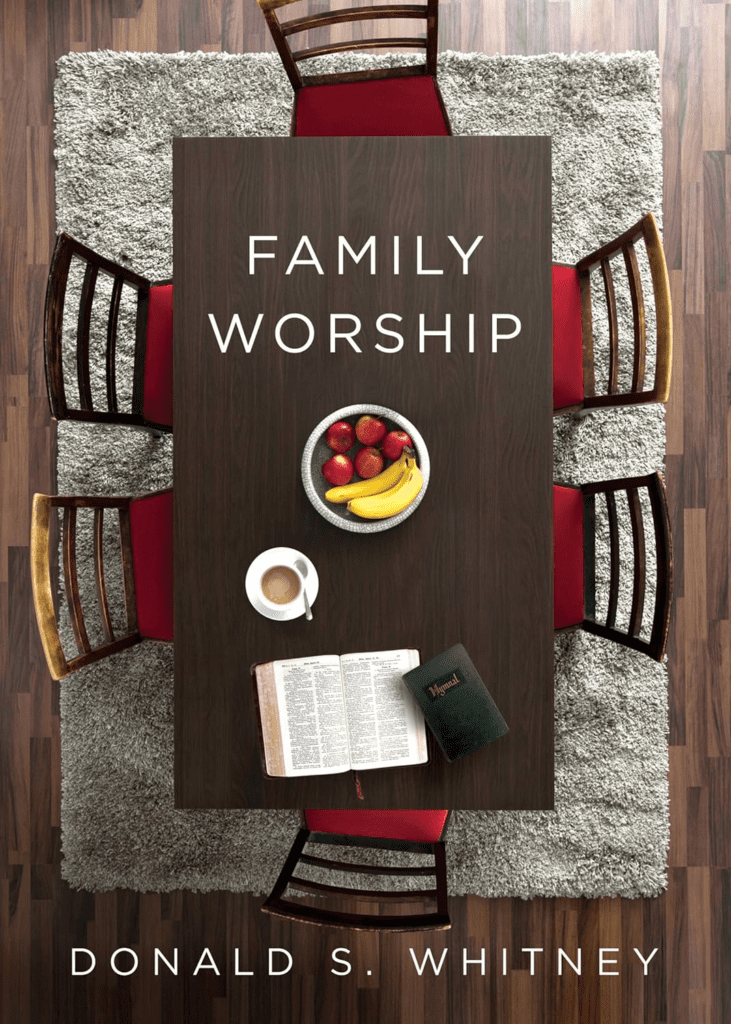
- Well-Rounded Doctrinal Clarity: We all have our pet doctrines and passages which we love and come back to often. However, because of this, we can also end up missing other important doctrines. Creeds, confessions and catechisms give us a thorough and systematic understanding of all the major points of Christian doctrine. They also clearly define positions so people know what a local church believes and practices.
- Unity & Culture: Reciting the Nicene Creed unites believers with a common confession shared throughout history. In addition, these can be powerful tools in building a robust and thick shared church culture. Modern church culture tends to be thin and shallow, but a church that effectively utilizes creeds, confessions and catechisms together can build a culture that stands up to modern challenges, disciples the next generation well, and gives more points of commonality and communion for its members.
This is most effective in culture building when a church altogether embraces and uses them.
Make no mistake—we are in a culture war, and just as you cannot fight a tank war without tanks, you can’t fight a culture war without a culture (Wilson). These tools help build a deep, robust and historically rooted culture. It’s one of those things that many people need to experience to really know what they’ve been missing out on. - Catechesis & Family Worship: Catechisms are powerful tools for discipling children and adults. Charles Spurgeon compiled a catechism for his congregation, stating, “I am persuaded that the use of a good Catechism in all our families will be a great safeguard against the increasing errors of the times.”
Fathers should be leading in family worship daily. Scripture commands fathers to ensure that their children are brought up in the “fear and admonition of the LORD”. The words used, paideia and nuthesia speak to a thorough enculturation of the child so that they know and love the culture of Christ’s Kingdom, its laws, customs, values, morals and ethics. This takes a lot of work, wisdom and intentionality. Many think that adding Catechisms and Creeds makes things more difficult—but the opposite is true!
Fathers today are already burdened with much to provide. The average dad working 40-50 hours a week realistically does not have time (nor expertise) to craft a discipleship curriculum to thoroughly enculturate their children. Even many pastors could not do that!
So why not make use of Reformed Catechisms that have been crafted by men wiser than us and which have been tested for centuries as being effective tools? There are even apps that will help you do this! And as you do it together, you all grow in your knowledge of Scripture and theology. The fact is that every family will catechize their kids into something—the only question is whether it will be good or not, and who will do it—a godly father or Disney? - Corporate Worship: Reciting them weekly in worship, like the Nicene Creed, connects us to the historic church. Use it as a teaching moment to help congregants understand the significance and that we are joining in what centuries of Christians have confessed and died for. Feel the weight of joining millions across the ages in this confession. Go all in, don’t be half-hearted. Some churches fear that repetition will make things stale; however, without repetition, it doesn’t really have the full effect. Also, if repetition automatically makes something stale, then I guess we should stop doing the Lord’s Supper, baptisms, prayers at mealtimes, learning ABCs, and a whole host of other things. When you think about it, it’s really a lazy excuse.
- Apologetics: Catechisms prepare Christians to give an answer for their faith (1 Peter 3:15). By memorizing doctrines with Scriptural proofs, believers can articulate their beliefs clearly. I have godchildren who, at 8 years old, were better apologists than most adult Christians because they were catechized. Every Christian, when asked what the Bible teaches, offers a synthesis akin to a creed made up on the spot. However, creeds and catechisms provide this synthesis with biblical grounding and historic weight.
- Guarding Against Error: They help train a Christian community to be able to more easily spot error and recognize when things don’t follow “the pattern of sound words.” Pastors could save themselves a lot of work in having to run after immature Christians falling for the goofy theology of the latest Christian rock band by utilizing these tools.
- Spiritual Maturity: Creeds and catechisms deepen our understanding over time, fostering growth. These tools give a congregation a solid foundation to build upon. I was a part of a church that utilized this effectively, and it was noticeable that the average theological literacy of people in the pew was much higher than in other churches. Also, it helps the pastor since he doesn’t always have to go back to re-explain foundational concepts, but could go on to deeper things and the “meaty” doctrines because he could trust that a well catechized congregation had a firm foundation in the essentials.
Practical Steps: Start small—recite a creed monthly or study a catechism question weekly in small groups. Resources like Ligonier Ministries or Trueman’s The Creedal Imperative can guide you.
Practical Tips for Families:
- For young children, use simplified versions like the Baptist Catechism for Boys and Girls.
- Incorporate one question per week into family devotions, discussing its meaning and memorizing answers. Start early. My 2 year old can recite the first 8 answers, and could be a lot further along if I were more consistent.
- Use songs or mnemonics, like those from Founders Press, to aid memorization. There is also a free playlist of the Baptist Catechism for Boys and Girls and a free playlist from Brian Sauve of the whole Westminster Shorter Catechism in song form.
- Use the catechism question and answers to help your child understand concepts. For example, when your child asks “why do we worship God”? Which my son has asked—I simply remind him of his catechism answer and use it as a teachable moment.
Practical Tips for Churches:
- Offer classes for parents on how to catechize their kids and how to do family worship. Many today have never had this experience and don’t know where to start.
- Provide study guides for parents to use at home.
- Incorporate catechism questions or parts of the Confession into sermons or teaching series. They cover so many theological topics that it is really easy to incorporate them, and they provide an easy reference for precise formulations of historic doctrine.
- Encourage memorization, rewarding children who recite the catechism. Make a game out of it. Role play.
In a world valuing personal opinion over truth, Reformed Catechisms, Creeds, and Confessions anchor us in God’s Word and the historic faith. They equip us to understand, live out, and defend our beliefs, preparing the next generation to stand firm.
“The question is not so much ‘Should we use them?’ as ‘Why would we not use them?’ They do nothing but ensure that biblical content and priorities are kept uppermost in the public worship of the church.”
Let’s embrace these tools to glorify God and pass on the faith faithfully.
Bibliography
- Trueman, Carl R. The Creedal Imperative. Crossway, 2012.
- Trueman, Carl R. Crisis of Confidence: Reclaiming the Historic Faith in a Culture Consumed with Individualism and Identity. Crossway, 2024.
- “Why Creeds and Confessions?” Ligonier Ministries. https://www.ligonier.org/learn/articles/why-creeds-and-confessions
- “How do creeds and confessions help us?” Ligonier Ministries. https://www.ligonier.org/learn/qas/how-do-creeds-and-confessions-help-us
- Piper, John. “Is There a Place for Creeds In the Church?” Desiring God. https://www.desiringgod.org/interviews/is-there-a-place-for-creeds-in-the-church
- “Kids with Creeds: Why Our Family Confesses the Faith.” Desiring God. https://www.desiringgod.org/articles/kids-with-creeds
- Britannica, “Westminster Catechism,” www.britannica.com/topic/Westminster-Catechism
- Reformation21, “Keeping with Catechizing,” www.reformation21.org/blog/keeping-with-catechizing
- Spurgeon, C.H., Puritan Catechism, Christian Classics Ethereal Library, ccel.org/ccel/spurgeon/catechism/catechism.ii.html
- Williamson, G.I., The Westminster Shorter Catechism: For Study Classes, P&R Publishing, 2003.
- Weerstra, Caroline, How to Teach the Westminster Shorter Catechism: A guide to catechizing covenant children, Catechism for Kids, 2014.
- Reformed Mama, “Children’s Catechism Resources,”
www.reformedmama.com/childrens-catechism - Modern Puritans, “Westminster Shorter Catechism (For Kids),” www.modernpuritans.com/westminster-shorter-catechism-for-kids
- Reformed.org, “A Brief History of the Heidelberg Catechism,” reformed.org/historic-confessions/a-brief-history-of-the-heidelberg-catechism
If you found this article helpful, please consider sharing it with others using the buttons below.



